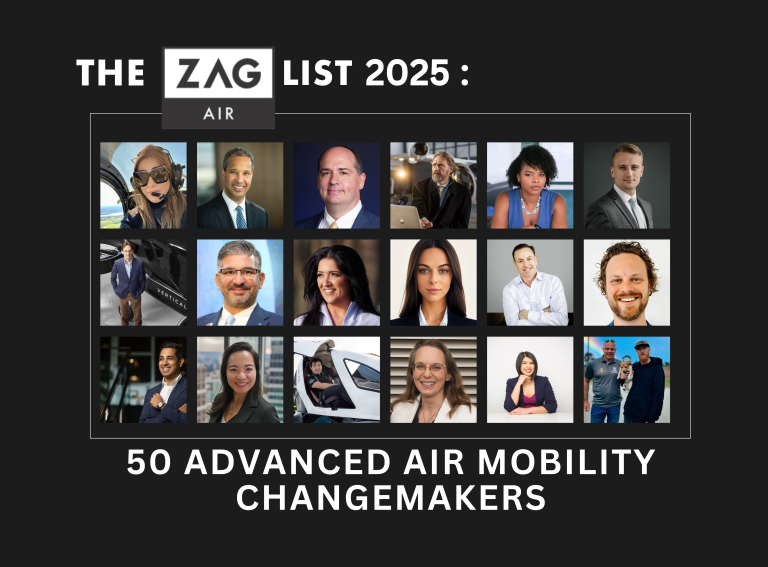The Advanced Air Mobility sector has been anything but quiet over the festive season. From dramatic financial rescues to new certifications in the Chinese market, here are the major stories you might have missed.
Lilium Gets a Christmas Lifeline
Munich-based eVTOL maker Lilium has been thrown a lifeline after months of financial trouble.
A group of investors under the name Mobile Uplift Corporation has agreed to buy the assets of two of Lilium’s key subsidiaries, Lilium GmbH and Lilium eAircraft GmbH.
Mobile Uplift Corporation GmbH was formed by a consortium of European and North American investors. Robert Kamp, CEO of The Ambitious Group, was involved with this consortium.
“I always believed that someone would step up and save Lilium at the last minute,” Kamp explained. “There were a few parties involved and it was all done fairly, everyone knew each other and we tried to consolidate everyone together to make it stronger.”
The sale comes after Lilium ran out of funding, leaving the company no choice but to enter insolvency proceedings in October. On 20 December, Lilium laid off 1000 employees only for the new deal to be announced on Christmas Eve. Mobile Uplift has said it plans to rehire staff once the agreement is finalised, which is expected to happen in January.
This deal could allow the company to get back to business this year, although Kamp believes that Lilium will need another 500 million euros to succeed.
“We still believe in the product and that it will be one of the first ones in operation in one or two years,” said Kamp.
The funds generated from the sale will be distributed according to German insolvency law, leaving no payments for Lilium N.V., the parent company. The transaction is expected to close in early January, subject to creditor approval and procedural requirements.
Lilium, founded in 2013, has raised over €1.5 billion and is developing an electric air taxi for certification and delivery by 2026.
CEO Klaus Roewe called the deal a “major breakthrough” that could help the company restart its operations and continue working toward its goals.
Volocopter Files for Bankruptcy
Following Lilium’s dramatic rescue, another German eVTOL pioneer has faced financial turbulence of its own.
Volocopter, the Karlsruhe-based flying taxi manufacturer, has filed for bankruptcy after failing to secure new funding. The company, which has been developing its two-seater “Volocity” air taxi, said it will continue normal operations during the insolvency process while seeking new investors.
Volocopter, founded in 2011, had been gearing up to launch its electric vertical takeoff and landing (eVTOL) vehicle commercially in 2025. However, financial challenges and delays in securing type certification from the European Union Aviation Safety Agency (EASA) have hindered progress.
The company announced that three-quarters of the certification criteria have been met, but further financing is required to take the final steps toward market entry.
Volocopter had also faced setbacks earlier this year when it was forced to cancel test flights at the Paris Summer Olympics due to delays in engine certification. Despite the challenges, the company remains optimistic about securing investment to continue its operations.
China’s RX4E Electric Aircraft Secures Historic Certification
While the European eVTOL sector has been turbulent, China has been making progress, with the RX4E becoming the country’s first fully electric aircraft to receive type certification.
The announcement, made by the Civil Aviation Administration of China (CAAC) marks a milestone in the nation’s push for new energy aviation technology.
Developed by the Liaoning General Aviation Academy of Shenyang Aerospace University, the four-seat RX4E was designed under China’s CCAR-23 airworthiness regulations. Powered by a lithium battery with 70 kWh capacity and a maximum output of 140 kW, the aircraft can fly for up to 1.5 hours with zero emissions, low noise, and reduced operational costs.
With a wingspan of 13.5 metres and a maximum takeoff weight of 1,260 kilograms, the RX4E is positioned for applications like pilot training, sightseeing, aerial photography, and surveying. Plans are already in place to create variants for water, snow, and hydrogen propulsion, broadening its market potential.
This achievement comes as China’s low-altitude economy grows rapidly, supported by strong supply chains and infrastructure. The sector is expected to reach ¥670 billion (around $94 billion) in 2024.




